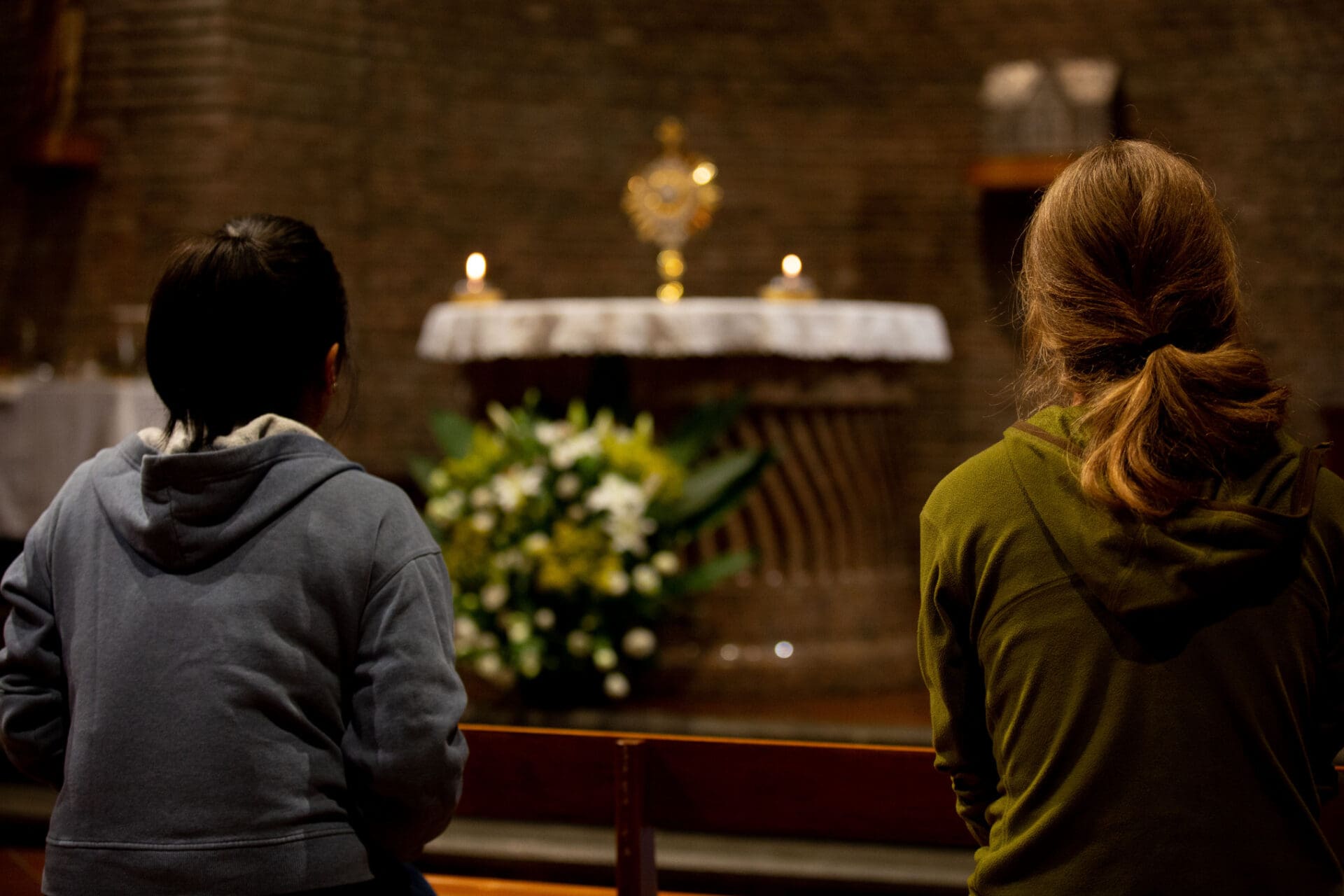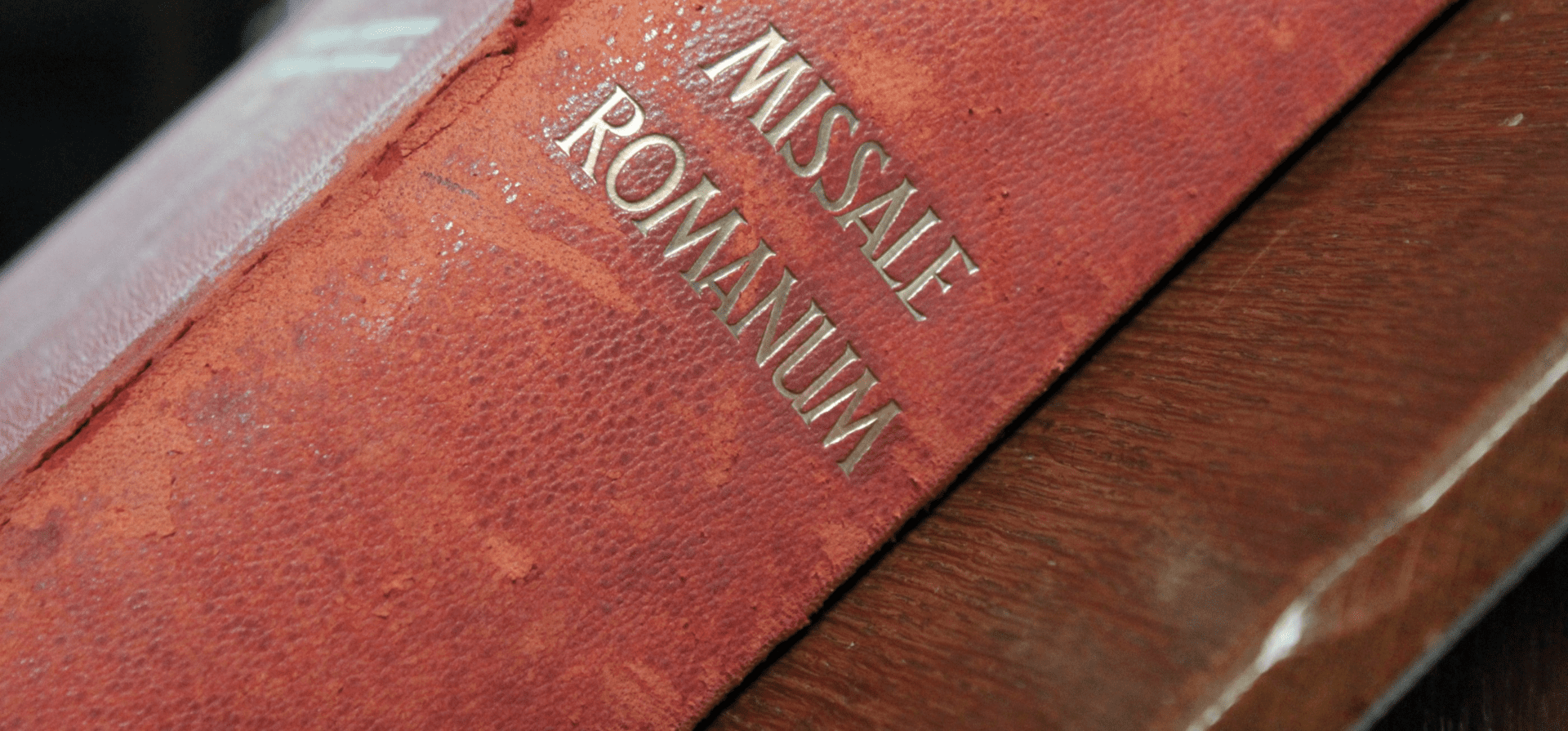Treasured Thanks
Thank you for your wonderful Liturgical enrichment!
Brother Cyril Ochab
Clinton Township, Michigan
Care and Prayer
Dear Editor,
I am enclosing a donation for the Adoremus Bulletin.
My husband and I live in a Care Center and appreciate being able to receive it. Thanks for the work you do so we can be informed.
Sincerely,
Mrs. Rose Marie Gouin
Duluth, Minnesota
Words of Profit
I have very little money but read your newsletter with serious attention and much profit.
Thank you.
Father Wm. Virtue
Retired
Batavia, Illinois
Dear Mr. Carstens,
I have several questions concerning the liturgy. Some priests do not want to listen to a lay person concerning the liturgy, since it is their province. However, you are liturgy experts and your answers will help me in speaking to them.
Thank you for your time and knowledge.
Yours,
Gail Jacobelli
Sun City, CA
Ms. Jacobelli’s questions follow with responses from Adoremus:
Question 1 – Eucharistic Prayer: It appears the Eucharistic Prayer can be sung/chanted, including the words of consecration. Can the priest stop chanting after “Do this in memory of me”? If he chants, should he chant all of the Eucharistic Prayer? Can a musical instrument (piano, organ, guitar, etc.) accompany him in any way? (Such as ripples of notes on the piano at various times.)
Adoremus responds: The Roman Missal includes chant notation for each of the four Eucharistic Prayers in their entirety, but there are no supplementary instructions in the Missal or in any other document on their use. The General Instruction of the Roman Missal (GIRM) does, however, give broader guidelines that are applicable here, namely, that “in the choosing of the parts actually to be sung, preference is to be given to those that are of greater importance” (GIRM, 40). The Eucharistic Prayer is “the center and high point of the entire celebration” (GIRM 78), and the words of institution form the core of the Eucharistic Prayer. These consecratory formulas, then, may rightly be sung when other parts of the Eucharistic Prayer are recited.
Additionally, the principle of “progressive solemnity” suggests that the Eucharistic Prayer, in whole or in part, ought to be sung on more solemn occasions. Progressive solemnity directs that “between the solemn, fuller form of liturgical celebration, in which everything that demands singing is in fact sung, and the simplest form, in which singing is not used, there can be various degrees according to the greater or lesser place allotted to singing” (See Sing to the Lord: Music in Divine Worship, 111; Musicam Sacram, 7). Hence, the more important elements of the Mass and of the Eucharistic Prayer can be sung to amplify the significance of the occasion.
Apart from the priest’s chanting of the Eucharistic Prayer, “‘there should be no other prayers or singing, and the organ or other musical instruments should be silent,’ except for the people’s acclamations…” (Redemptionis Sacramentum, 53; GIRM, 32). And again, “The Eucharistic Prayer requires that everybody listens to it with reverence and in silence” (GIRM, 78).
Question 2 – Penitential Act: If the form used is “I confess to Almighty God and to you…,” does “Lord have mercy, Christ have mercy, Lord have mercy” need to follow? In the missalette, it shows it as needing to be said by the people. Can the priest choose to not say the “Lord have mercy, Christ have mercy, Lord have mercy” if he uses the “I confess to Almighty God” form?
Adoremus responds: The “Lord, have mercy” or “Kyrie, eleison” is said or sung when the Confiteor is used at Mass, as the rubric in the Missal directs: “The Kyrie, eleison (Lord, have mercy) invocations follow, unless they have just occurred in a formula of the Penitential Act” (7).
Question 3 – After communion: Who can repose the Blessed Sacrament after communion is finished? I thought only a priest or deacon could do this after communion has been distributed at Mass.
Adoremus responds: While many documents give detailed instructions on certain parts of the Mass, the relevant documents say little on returning the Blessed Sacrament to the tabernacle following communion. The one instance in the Missal where it mentions returning the sacrament to the tabernacle concerns the priest: “When the distribution of Communion is over, the Priest himself immediately and completely consumes at the altar any consecrated wine that happens to remain; as for any consecrated hosts that are left, he either consumes them at the altar or carries them to the place designated for the reservation of the Eucharist” (163). Nowhere does the GIRM mention either the deacon or instituted acolyte returning the remaining hosts to the tabernacle. The priest, unlike any other liturgical minister, has special care of the Blessed Sacrament, and this instruction signifies his duty.
On the one hand, it seems reasonable that especially a deacon, or even an extraordinary minister of Holy Communion, could return hosts to the tabernacle, particularly if the tabernacle were outside the sanctuary and would require the priest-celebrant to leave it. If a layperson were permitted to distribute communion, it seems in keeping with that role that he or she could return hosts to the tabernacle.
On the other hand, extraordinary ministers of Holy Communion are not permitted to purify vessels, even though they can distribute communion from them. Among other reasons, there is an ecclesiological principle guiding the types and roles of liturgical ministers. Redemptionis Sacramentum, invoking the General Instruction of the Roman Missal and Sacrosanctum Concilium, explains that “All, ‘whether ordained ministers or lay faithful, in exercising their own office or ministry should do exclusively and fully that which pertains to them.’ In the liturgical celebration itself as well as in its preparation, [liturgical participants] should do what is necessary so that the Church’s Liturgy will be carried out worthily and appropriately. To be avoided is the danger of obscuring the complementary relationship between the action of clerics and that of laypersons, in such a way that the ministry of laypersons undergoes what might be called a certain ‘clericalization’…” (44-45). Liturgical ministers, by their presence and action properly carried out, manifest the Church.
So: can laypersons repose the Blessed Sacrament? In the absence of anything definitive, and applying the Church’s liturgical principles to his particular parish, the appropriate pastoral authority should decide.
Speaking of Lay Ministers…
The discussion whether there is a deacon’s first blessing in the May Bulletin reminded me of the blessings that are given individually during Mass to non-Catholics or baptized Catholics who have not yet received their First Holy Communion. With forearms crossed over their chest, they approach the person distributing Holy Communion for a blessing with others who are approaching to receive the Sacrament. Can you comment on this practice and the propriety of extraordinary Eucharistic ministers giving this blessing? And in general, can any Catholic lay person impart a blessing on another person?
Thank you.
Thomas Valli, via email
Adoremus: A common question, one that Adoremus is pleased to have answered by Father Daren Zehnle, Director of the Office for Divine Worship and the Catechumenate in the Diocese of Springfield (IL). See next column.

